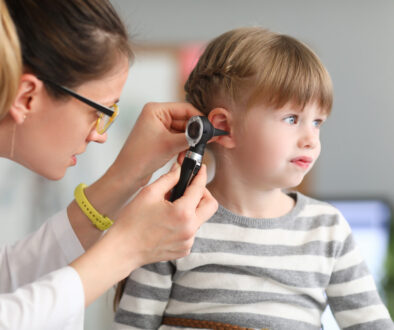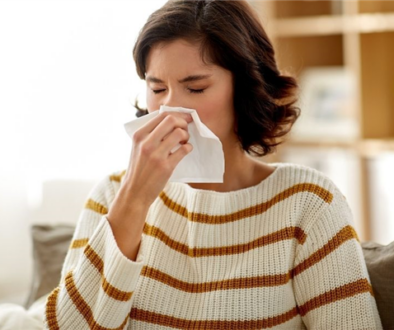How “Germy” is Your Child’s Classroom? 5 Tips for Avoiding Infections
Back to school means more than a new set of pencils or backpacks. It means your child is going to be extensively exposed to germs, which can pave the way for colds, sinus problems and other illnesses throughout the school year.
How many germs are in your child’s classroom?
Studies have shown that any common classroom object – pencil sharpeners, desktops — is covered in bacteria. Robert Donofrio, director of a microbiology lab at a public health and safety firm in Ann Arbor, Mich., recently conducted a study evaluating common surfaces in a local classroom. Anything with a reading above 300 meant that there were several microorganisms that could cause illness.
The overall count was over 2,000. The “germiest” substance? The answer may surprise you. It was the water fountain. This doesn’t even count the number of bacteria your child can be exposed to on the school bus, playground or from classmates who come to school despite being sick.There are several precautions you can take to ensure your child stays as healthy as possible. This is particularly important during cold and flu season.
Here are five tips to help your child avoid infections.
1. Handwashing
Quite simply, the most effective method of avoiding illness is to wash hands regularly. However, most people do not know how to properly wash their hands. Hands should be scrubbed with warm water and soap for at least 20 seconds (or as long as it takes to sing the “Happy Birthday” song twice.)
Teach your child to wash his or her hands:
- Before eating, whether it’s at lunch or just an afternoon snack
- After going to the bathroom
- After blowing his or her noise, sneezing or coughing
- After being in contact with a classmate who has been sneezing
- After touching anything dirty, such as garbage, playground equipment, etc.
2. Teach your child to avoid sharing water bottles, personal hygiene items such as combs, or other substances with classmates.
3. Provide nutritious foods and snacks for your child.
There are a lot of things you can do to help strengthen your child’s resistance to bacteria. Eating vegetables and getting regular exercise will help your child stay healthy, making them less likely to pick up the latest “bug” going around the classroom.
4. Be sure your child is up-to-date on vaccinations, particularly during flu season.
Did you know that the flu kills thousands of Americans each year? It’s important that you ensure your child has the flu vaccine each year.
In the U.S., many serious childhood diseases are rare. However, as fewer and fewer are vaccinated, these diseases are likely to return.
5. Don’t overuse antibiotics.
Most childhood colds and coughs are caused by viruses, meaning that antibiotics won’t be effective against them. Overuse of antibiotics creates antibiotic-resistant bacteria that present a health hazard not just for your child, but for the general public.
Colds and even sinus infections dramatically increase when the school year starts. At Raleigh Capitol Ear, Nose and Throat, we specialize in treating pediatric patients of all ages. We will work together with your entire family to tailor a plan of treatment that is appropriate for your child.
Raleigh Capitol Ear, Nose, and Throat is the area’s premiere physician-owned ENT practice with six convenient locations throughout Wake County. Our board-certified physicians have extensive experience in treating both common and complex cases to help adults and children alike. For more information or to schedule an appointment, contact us.




